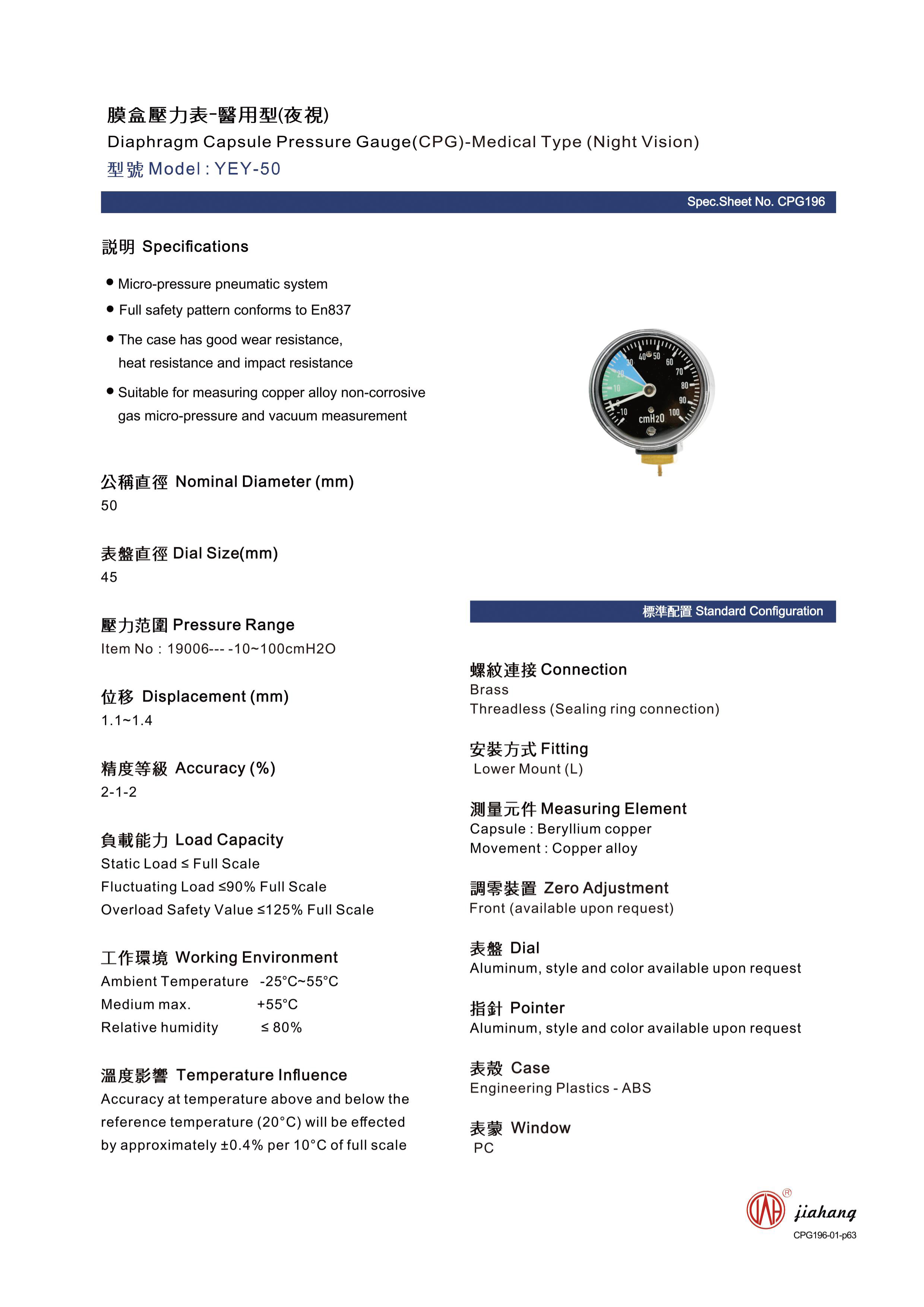
8월 . 13, 2024 15:31 Back to list
Understanding the Importance of Differential Pressure Gauge Accuracy in Industrial Applications and Measurements
Understanding Differential Pressure Gauge Accuracy
Differential pressure gauges are crucial instruments employed across various industries, including oil and gas, chemical processing, and HVAC systems. They are designed to measure the difference in pressure between two points in a system. This measurement is essential for ensuring efficient operations, safety, and regulatory compliance. However, the accuracy of these gauges is paramount, as any deviation can lead to operational inefficiencies, safety hazards, or even catastrophic failures.
Importance of Accuracy
The accuracy of a differential pressure gauge is fundamental in processes such as filtration, flow measurement, and level measurement. For instance, in a filtration system, the differential pressure gauge provides data on filter fouling. If the gauge is inaccurate, it can lead to premature filter changes, increasing operational costs, or failure to detect when a filter needs to be replaced, potentially jeopardizing the entire process.
Moreover, in HVAC systems, maintaining precise pressure differentials helps achieve comfortable indoor environments while optimizing energy efficiency. A minor error in these gauges can result in the overuse of energy, leading to increased operational costs and environmental impacts.
Factors Affecting Accuracy
Several factors can influence the accuracy of differential pressure gauges. These include
1. Calibration Regular calibration is essential to maintain the accuracy of a differential pressure gauge. Over time, gauges can drift from their calibrated settings, leading to errors. It is vital to follow the manufacturer’s recommendations for calibration frequency to ensure reliable performance.
differential pressure gauge accuracy

2. Temperature Influences Temperature fluctuations can impact the internal mechanisms of pressure gauges, affecting their readings. Differential pressure gauges should be selected and calibrated to operate within specific temperature ranges to mitigate these effects.
3. Vibration and Shock Industrial environments are often subject to vibrations and shocks, which can affect gauge readings. Installing the gauges in isolated or cushioned mounts can help reduce these impacts and improve accuracy.
4. Fluid Characteristics The type of fluid being measured can also affect gauge performance. Factors such as viscosity, density, and the presence of particulates can influence the gauge's response time and overall accuracy. Understanding the fluid dynamics is crucial for accurate readings.
5. Installation Location The location where the gauge is installed can also significantly affect its accuracy. Avoiding areas with high turbulence or flow disturbances can lead to more stable and reliable measurements.
Selecting the Right Gauge
When choosing a differential pressure gauge, several specifications must be considered to ensure accuracy. Look for gauges with a known accuracy percentage (often expressed as a percentage of the full-scale reading). High-quality gauges typically have an accuracy range of 0.1% to 1% of the reading. Additionally, consider the gauge design (analog vs. digital), as digital gauges often provide enhanced accuracy and ease of use.
Conclusion
In summary, the accuracy of differential pressure gauges is critical to the efficient and safe operation of various processes across multiple industries. Understanding the factors that affect gauge accuracy and selecting the proper instrument for the application can lead to significant improvements in operational efficiency, safety, and cost-effectiveness. Regular maintenance and calibration play essential roles in maintaining this accuracy, ensuring that these vital instruments continue to perform reliably in demanding environments. Businesses that prioritize gauge accuracy can improve their overall processes and achieve better compliance with industry standards, ultimately enhancing their operational success.
-
High-Precision 5 Valve Manifold Differential Pressure Gauge Suppliers
NewsApr.29,2025
-
High-Precision Diaphragm Vacuum Pressure Gauges Manufacturers & Quotes
NewsApr.29,2025
-
Omega Differential Pressure Gauges High Accuracy & Durability
NewsApr.28,2025
-
Low Pressure Differential Pressure Gauges Precision Solutions & Quotes
NewsApr.28,2025
-
Digital Diaphragm Pressure Gaauge Precision Measurement & OEM Quotes
NewsApr.28,2025
-
Differential Pressure Gauge China Price High-Accuracy & Best Quotes
NewsApr.28,2025
